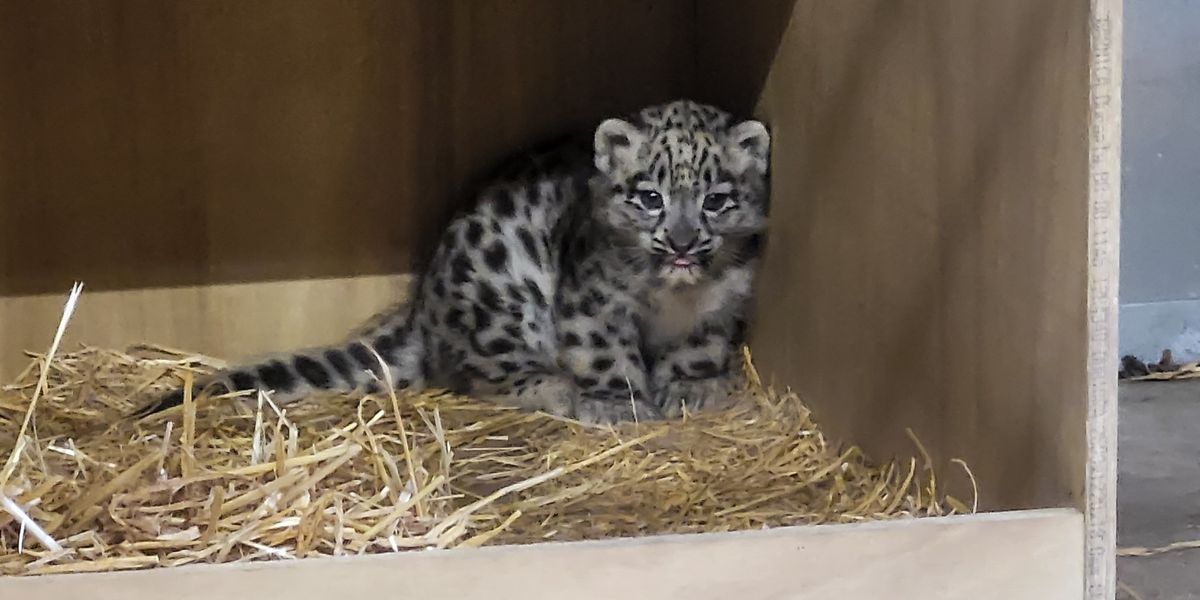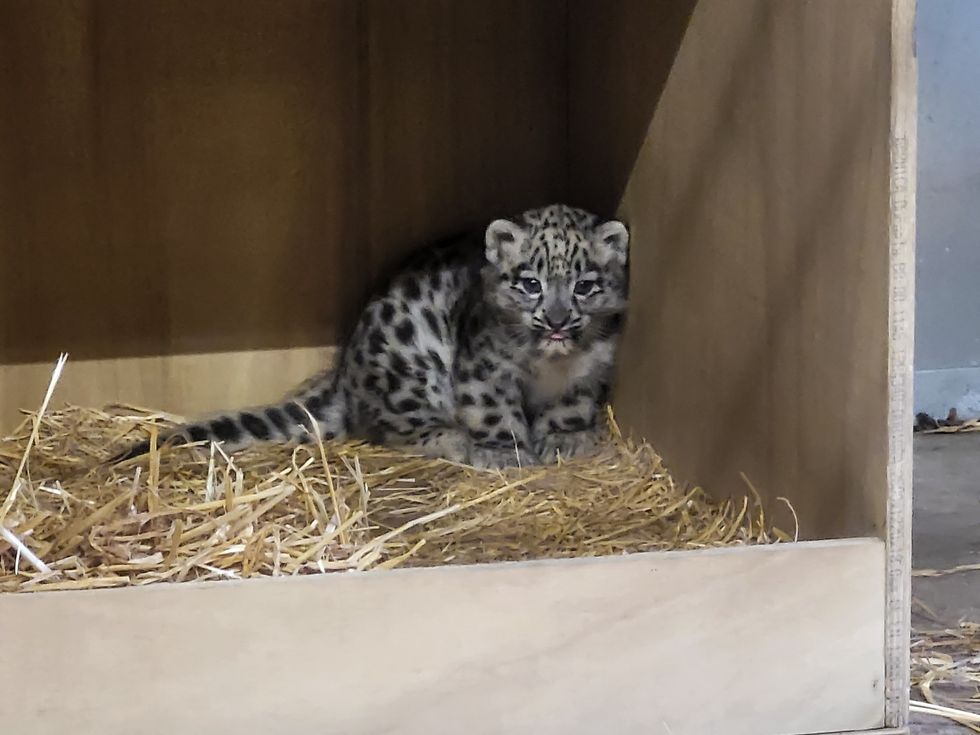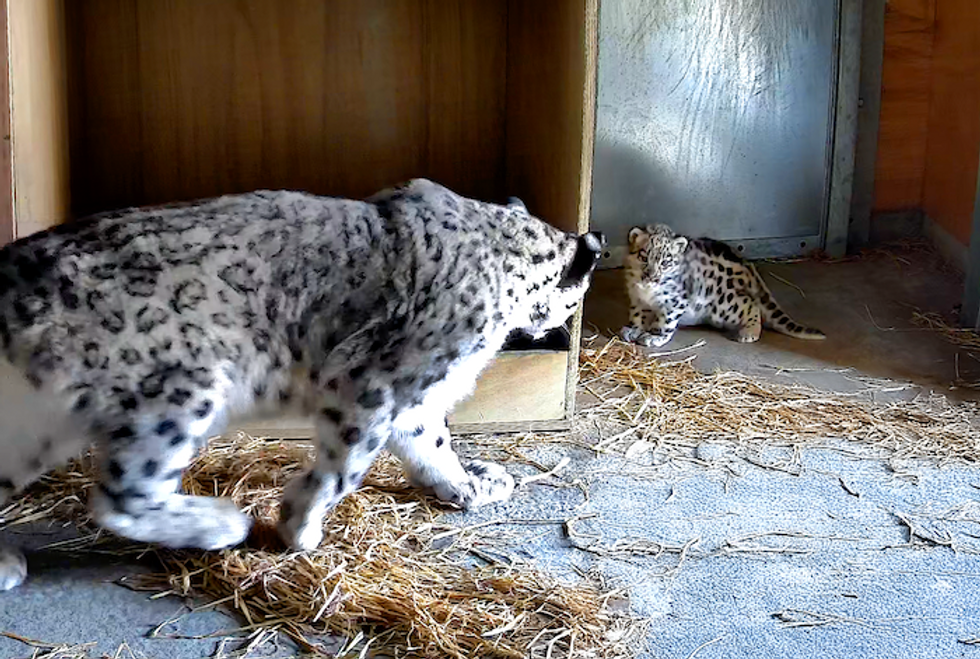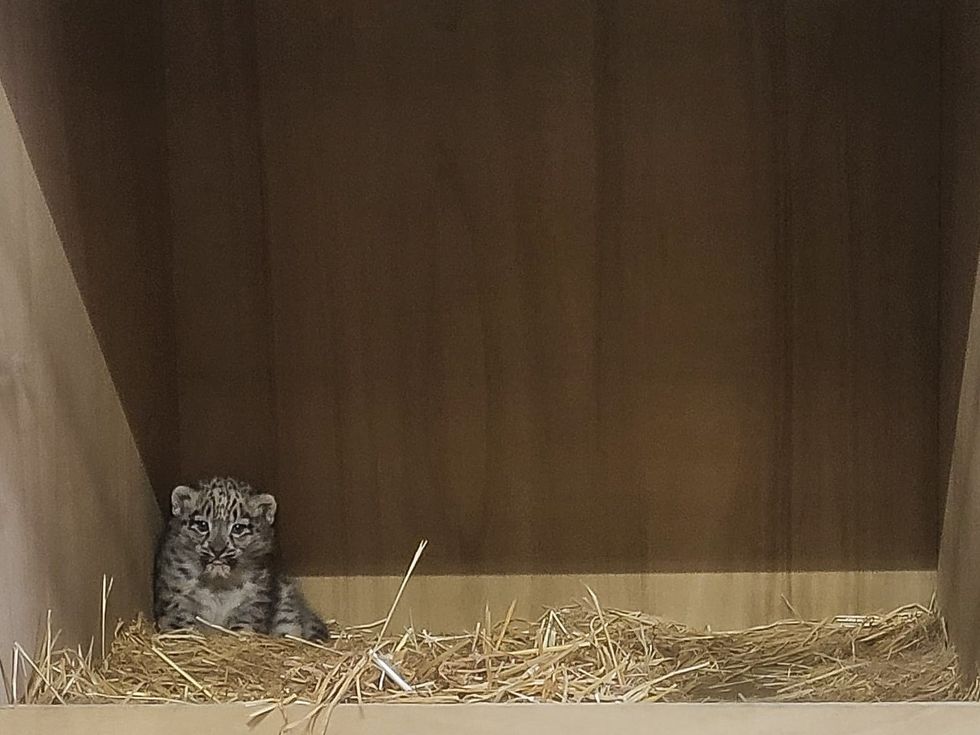



Chester Zoo has welcomed its first ever snow leopard cub in what the institution described as a "historic moment" for the future of the species.
The historic birth occurred on June 10, 2025, marking a significant milestone for the conservation of this endangered species.
Three-year-old parents Nubra and Yashin became first-time parents after being paired in 2024 through a global breeding programme designed to maintain a viable population of the threatened cats in leading zoological institutions worldwide.
Zoo specialists report that Nubra has demonstrated exceptional care for her offspring, maintaining constant proximity and nursing the youngster at regular intervals throughout the day.
The new mother briefly exits the birthing area solely for feeding purposes, according to the facility's carnivore team.
During the initial weeks following birth, both mother and infant remained secluded in their shelter, with surveillance cameras documenting their interactions.
Having reached six weeks of age, the young snow leopard has developed increased physical capabilities and self-assurance.
The breeding success represents a crucial development for international conservation efforts aimed at protecting snow leopards.

CHESTER ZOO
|Chester Zoo has welcomed its first snow leopard cub
Zoo staff indicate the cub could emerge from the den to explore its surroundings imminently.
Dave Hall, Team Manager of carnivores at Chester Zoo, said: "This is the first snow leopard cub to be born at Chester Zoo. It’s a truly historic moment and a real cause for celebration - not just for our teams here but also for the future of this magnificent species globally.
"The cub is now just six weeks old AND it’s still really early days, but new mum Nubra has taken to motherhood brilliantly and is showing excellent maternal instincts.
"This is her first cub and she’s doing an exceptional job of caring for her little one - feeding regularly and staying snuggled away in a cosy, behind-the-scenes den, where the pair has been quietly bonding and getting to know one another.
"Since the cub was born our carnivore team has kept the den area nice and peaceful and stayed well away, instead using CCTV cameras to monitor the cub’s development.
"It’s just fantastic to see the cub growing stronger and more confident each day.
"What’s really exciting is that it could decide to follow mum Nubra outside at any moment to start exploring the outside world."

CHESTER ZOO
|The historic birth occurred on June 10. 2025
Snow leopards are classed as vulnerable to extinction by the International Union for the Conservation of Nature (IUCN).
As few as 4,000 are estimated to remain in the wild.
Despite being known for living in remote regions of Central Asia and the Himalaya, the leopards continue to suffer from human impacts on the environment.
Zookeepers say they will confirm the sex of the cub at a later date once it has undergone its first health check-up with the zoo’s vets.

CHESTER ZOO
|Snow leopards are classed as vulnerable to extinction by the International Union for the Conservation of Nature (IUCN)
Dr Mayukh Chatterjee, Regional Field Programme Manager for Asia at Chester Zoo, added: "While this birth is a significant moment for snow leopard conservation, our work to help this species thrive extends far beyond our zoo.
"We’re working alongside The Snow Leopard Trust and communities in countries like Kyrgyzstan to protect snow leopards in the wild, while also improving livelihoods for people who live alongside them.
"By doing this, we’re helping to reduce human-wildlife conflict by developing sustainable, snow leopard-friendly alternatives to livestock farming - reducing retaliatory killings, which is one of their main threats, and instead promoting peaceful coexistence.
"It’s an approach that’s already seen success in other areas of the world, and we’re confident we can bring positive change to both people and snow leopards alike.
"The birth of a cub here in Chester, alongside our conservation work in the wild, is a powerful symbol of what we can achieve together to help these iconic big cats thrive long into the future."
